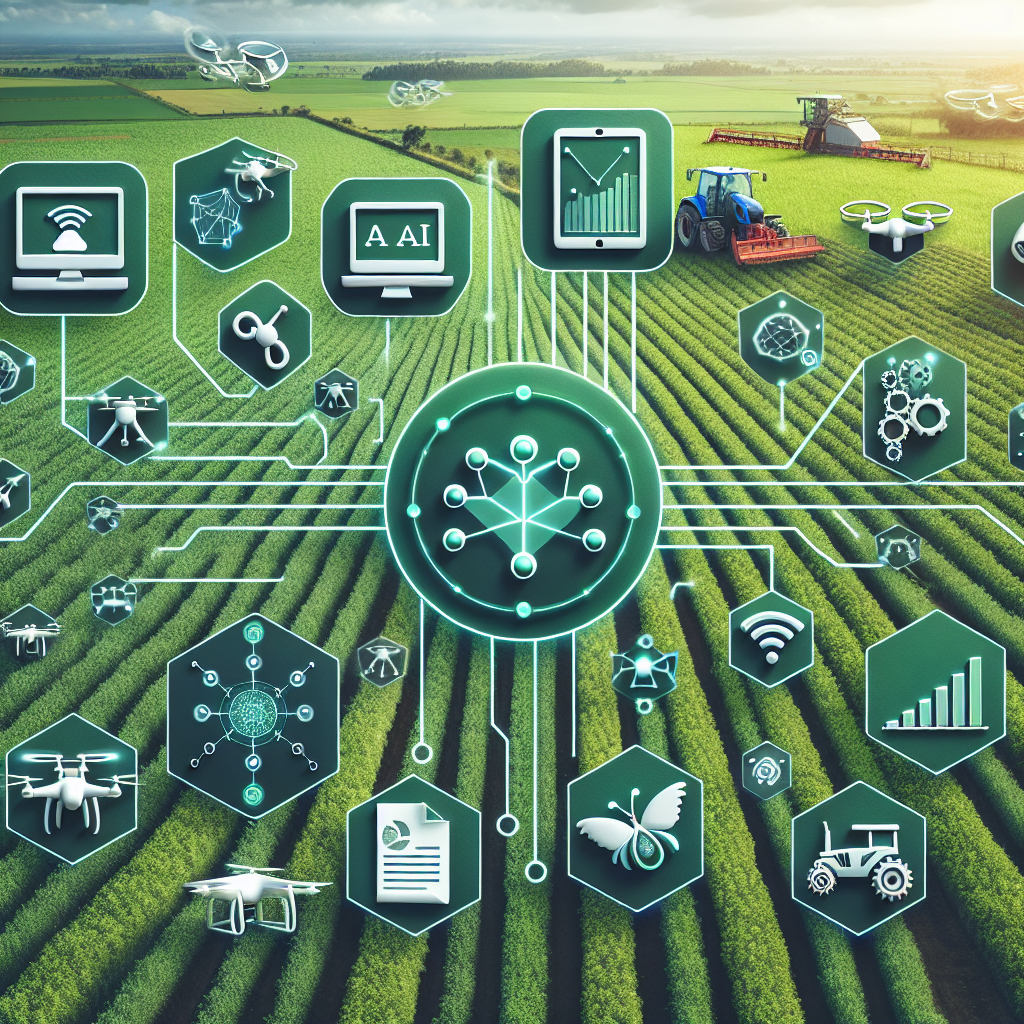Agriculture is one of the oldest and most essential industries in the world, providing food and resources for the global population. With the world’s population projected to reach 9.7 billion by 2050, the demand for food is expected to increase significantly. To meet this growing demand, the agricultural industry must innovate and adopt new technologies to increase efficiency, productivity, and sustainability.
One of the most promising technologies that has the potential to revolutionize the agricultural industry is Artificial Intelligence (AI). AI tools have the ability to analyze vast amounts of data, make predictions, and automate tasks, making them invaluable tools for farmers and agricultural businesses. In this article, we will explore some of the AI tools that are driving innovation in agriculture and transforming the way we grow food.
1. Precision Agriculture
Precision agriculture is a farming management concept that uses AI tools to optimize the use of resources such as water, fertilizers, and pesticides. By collecting data from sensors, drones, and satellite imagery, AI algorithms can analyze the data to create detailed maps of the farm, identifying areas that need more or less of a specific input. This allows farmers to apply resources more efficiently, reducing waste and increasing yield.
2. Crop Monitoring
AI-powered drones and satellites can capture high-resolution images of crops, allowing farmers to monitor the health and growth of their crops in real-time. By using computer vision algorithms, AI tools can analyze these images to detect diseases, pests, and nutrient deficiencies early on, enabling farmers to take corrective actions before it’s too late.
3. Predictive Analytics
AI tools can use historical data, weather forecasts, and soil conditions to predict crop yields, identify potential risks, and make recommendations on planting, irrigation, and pest control. By leveraging these predictive analytics, farmers can make informed decisions that can lead to higher yields and better crop quality.
4. Weed and Pest Control
AI tools can identify and differentiate between crops and weeds using computer vision algorithms. By using this technology, farmers can target weeds with precision, reducing the need for herbicides and minimizing the impact on the environment. Similarly, AI tools can detect pests and diseases early on, allowing farmers to take action before they spread and cause significant damage.
5. Robotic Farming
Robotic farming is another area where AI is making significant advancements. AI-powered robots can perform tasks such as planting, weeding, and harvesting with precision and efficiency. By automating these tasks, farmers can reduce labor costs, increase productivity, and improve the overall quality of their crops.
6. Soil Health Monitoring
AI tools can analyze soil samples to assess soil health, nutrient levels, and pH balance. By using this data, farmers can make informed decisions on fertilization, irrigation, and crop rotation, leading to healthier soils and better crop yields.
7. Supply Chain Optimization
AI tools can optimize the supply chain by tracking inventory, predicting demand, and identifying opportunities for cost savings. By using AI algorithms, farmers can streamline their operations, reduce waste, and improve profitability.
FAQs
Q: How can AI tools help farmers reduce water usage?
A: AI tools can analyze soil moisture levels, weather forecasts, and crop data to optimize irrigation schedules, reducing water waste and increasing water efficiency.
Q: Are AI tools expensive to implement on a farm?
A: While initial costs may be high, the long-term benefits of implementing AI tools on a farm, such as increased productivity and reduced input costs, can outweigh the initial investment.
Q: Can AI tools help farmers comply with environmental regulations?
A: Yes, AI tools can help farmers monitor and manage their operations to ensure compliance with environmental regulations, such as reducing pesticide use and minimizing water pollution.
Q: Are AI tools user-friendly for farmers who may not be tech-savvy?
A: Many AI tools are designed to be user-friendly and intuitive, with user-friendly interfaces and training programs to help farmers adopt and use the technology effectively.
In conclusion, AI tools have the potential to transform the agricultural industry by increasing efficiency, productivity, and sustainability. By leveraging the power of AI, farmers can make informed decisions, optimize resources, and improve the overall health and quality of their crops. As the demand for food continues to rise, AI tools will play a crucial role in driving innovation and shaping the future of agriculture.

